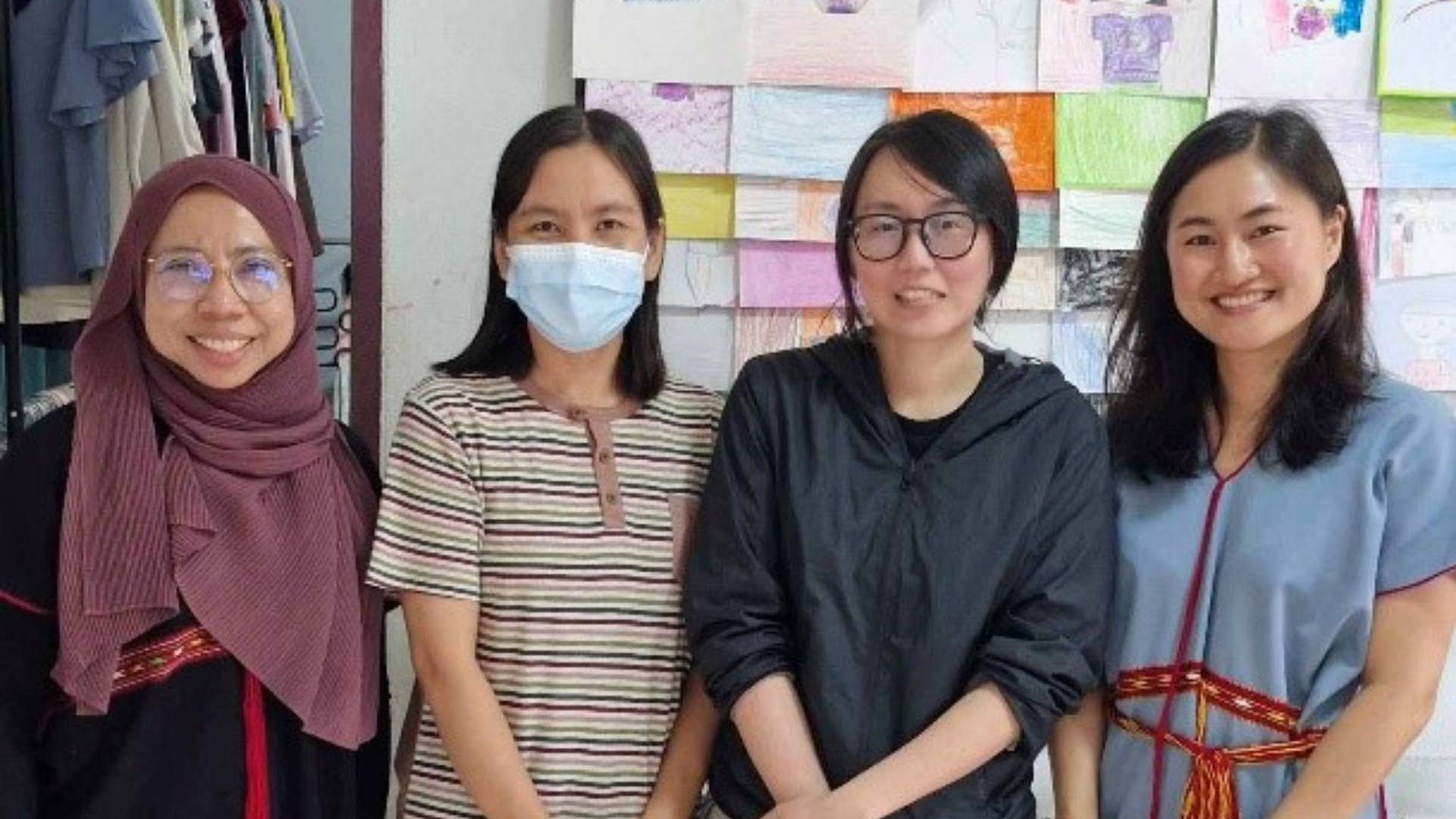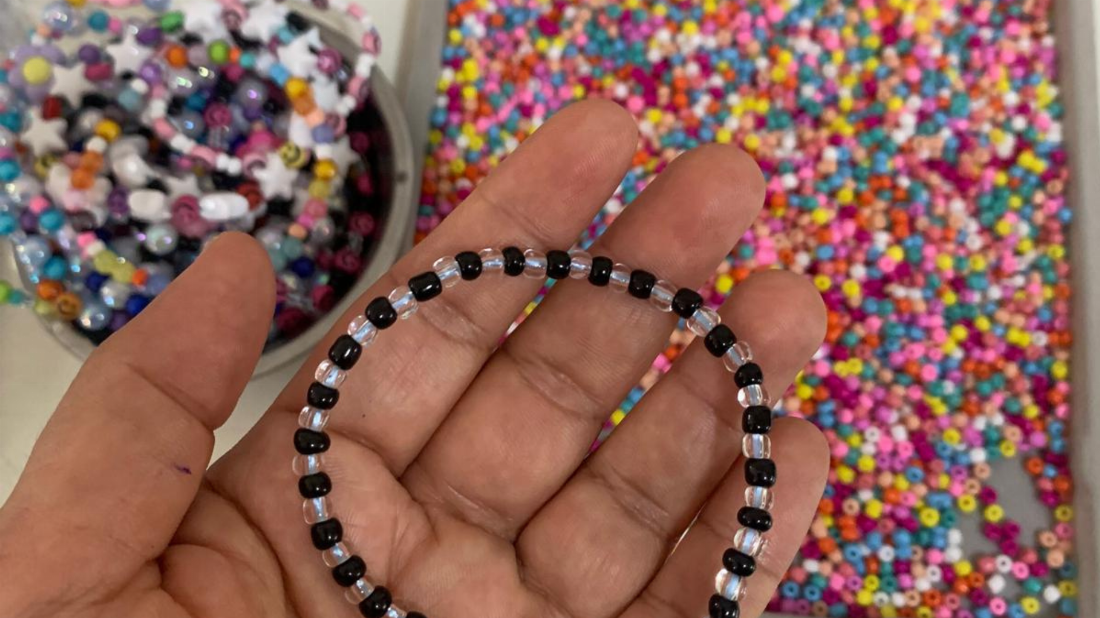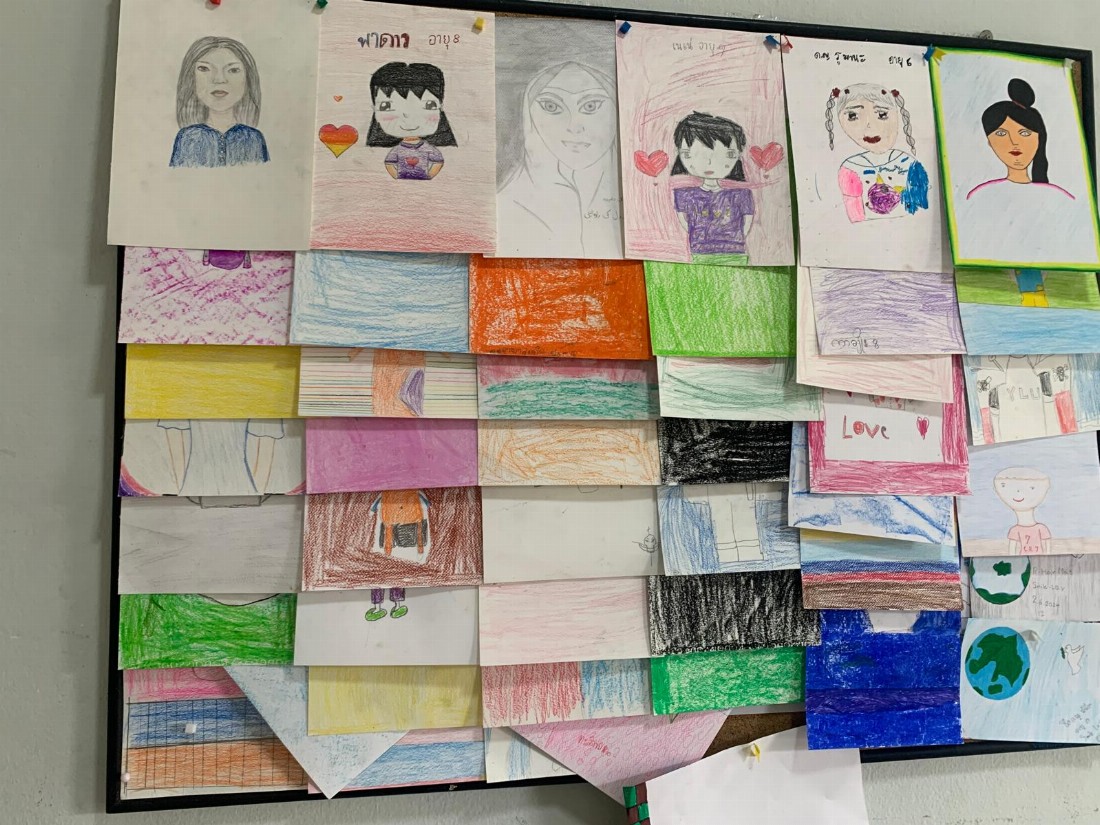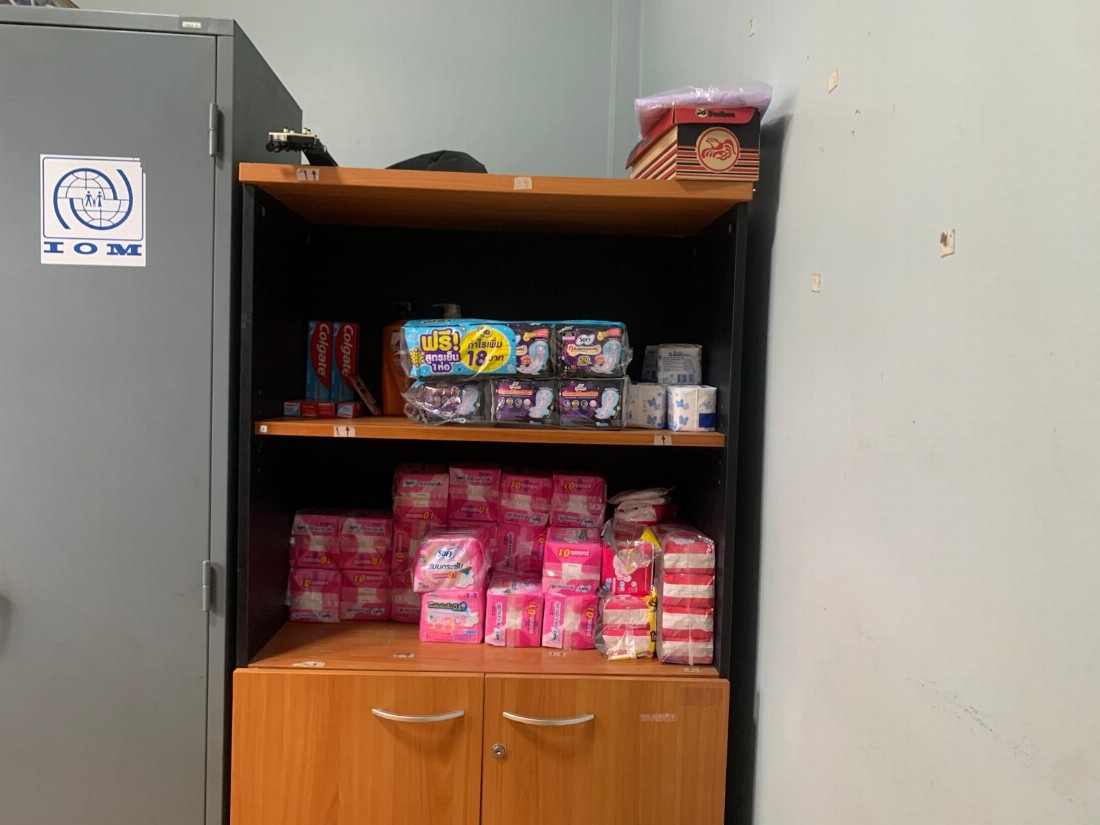thailand - mitigation
Dararai Ruksasiripong

- Actor/Organisation
- Dararai Ruksasiripong / Smile-Lay Club
- Current Title/Designation
- Coordinator
- Expertise/Focus Area
- Sexual and gender-based violence, Women's human rights; and Gender-specific protection concerns for minorities
- Date of Interview/Research
- 28 July 2024
- Location of Interview
- 38 Mae Sot - Mae Dao Road, Mae Sot, Tak (Smile-Lay Club Office)
- Diplomacy Track
- 3
Starting Point
Smile-Lay Club as a Secure Space
The Smile-Lay Club, also known as the Club for Migrant Children in Mae Sot, takes an approach centered on coordination and collaboration with government agencies, community organisations, and the private sector to support the children of migrant workers and refugees. Their focus is on creating a safe and supportive environment for these children. The club provides educational programs, emotional support, and recreational activities to help migrant children integrate into their communities, cope with the challenges of migration, and develop a sense of belonging. Its primary goal is to meet the specific needs of migrant and stateless children, including access to education, protection from exploitation and abuse, and the development of social skills.
The club also raises awareness about the rights and welfare of migrant children, encourages social inclusion, and provides a platform for self-expression. By offering opportunities for growth and development, the club aims to empower migrant children, ensuring they can thrive despite the hardships stemming from their migration status. The agenda to be included in the organisation's work to promote equality, safety, and the protection of the rights of mothers and children of refugees is to ensure that they receive proper care.
Smile-Lay Club aims to use the space for protecting displaced, stateless, and refugee children in Mae Sot as a safe area where they can coexist despite their differences. When the children meet, they can share their stories and engage in various activities during the day. Often, their mothers or guardians accompany them, which leads to the organisation of activities and listening to the perspectives of women, who are often excluded from access to various rights and are subjected to abuse. Additionally, older children at Smile-Lay Club face compounded challenges as refugees, including sexual abuse by members of their ethnic groups who are living in Mae Sot, both legally and illegally.
Dararai as a woman activist
Dararai has previously worked with international organisations and Women's Foundation, playing a key role in promoting the participation of grassroots and national women in peace processes along the border areas. In Mae Sot, Dararai has collaborated with local community organisations, especially the Muslims in the city, who play a significant role in addressing issues of sexual violence, cultural violence, and structural challenges. Dararai then shifted her focus to working with migrant children and co-founded Smile-Lay Club about three years ago.
After working in Mae Sot for nearly two decades, she has witnessed the complexities of power dynamics and the mismanagement of injustice, which most often affects girls. In addition to the structural issues that refugee girls displaced by the war in Myanmar or by poverty in Bangladesh face when entering Mae Sot, such as access to welfare systems, healthcare, and protection from being trafficked or exploited for sex work, sexual abuse issues are often linked to culture and patriarchal system. For instance, girls are sometimes forced into marriage before the age of 17, which is against Thai law, under the justification that it is a tradition within the Muslim Burmese community. In this community, it is considered necessary for girls to adhere to religious principles when interacting with boys or going out together. Dararai mentioned that although negotiations, education, and finding solutions remain challenging, they are making efforts to work with the relevant parties to address these issues.
Peace Journey
Smile-Lay Club serves as a vital secure space for displaced, stateless, and refugee children in Mae Sot. The club provides a safe environment where children from diverse backgrounds can come together, share their stories, and engage in various activities. This safe space promotes mutual understanding and coexistence, allowing children to navigate the challenges of migration and displacement in a supportive atmosphere.
Beyond offering a place for children, Dararai notes that the club also extended its support to mothers and caregivers, who often accompany their children. This creates opportunities to address the needs and perspectives of women, many of whom face significant barriers in accessing rights and are vulnerable to various forms of abuse. In addition to fostering an inclusive environment, Smile-Lay Club helps address complex issues, such as the protection of older children, who are at risk of exploitation, including sexual abuse by members of their ethnic groups. By offering these services, Smile-Lay Club is committed to providing both children and their families with a secure space to heal, grow, and thrive despite the difficulties they face due to their refugee status.
Smile-Lay Club works closely with volunteer teachers and trainers to understand how to assist urban refugee communities, provide basic services, and counselling, and create referral systems for seeking help from networks and government agencies. Activities that encourage refugee families to meet in groups and collaborate with the community help them live together peacefully. The concept of peace here refers to people coming from distant homelands, especially from Myanmar, who seek refuge in Mae Sot as a temporary base before relocating elsewhere. Most people do not move to other cities; instead, they try to find ways to stay in Thailand legally in the future. Smile-Lay Club's approach focuses on the development process as children grow, enhancing their basic life skills, survival skills, and strategies for coping with threats and sexual harassment as well as sexual violence. This includes supporting girls who are forced into marriage or face domestic violence.
Success Stories
Smile-Ley Club
By focusing on providing a safe space and supporting the empowerment of refugee women and girls, Smile-Ley Club works to address these challenges. Through activities that promote education, counselling, and the development of leadership skills, the club aims to strengthen the involvement of women and girls in peace processes, both within their communities and in broader social and political contexts. By focusing on the specific needs of women and girls, Smile-Lay Club plays a crucial role in fostering a more inclusive approach to peace and reconciliation in the city.
Personal
Linda, a volunteer, was once a young girl from a refugee family of the Pa-o ethnic group from Myanmar. Due to internal conflict, poverty, the difficulty of finding work, and other factors, particularly the civil war, she and her family had to flee for their safety. They migrated to escape the war and lived in a refugee camp, where Linda was able to engage in activities with the Smile-Ley Club team, a year before the club was officially founded. Linda recognised that the organisation's core mission is vital for fostering peace, especially among grassroots communities who have fled war in the border areas. The activities are structured in a way that minimises the risk of state scrutiny, as their focus is on humanitarian aid, child protection, and welfare, with active involvement from parents. This approach facilitates support through the open disclosure of violence victims, which makes their crisis resolution work distinct from efforts in the country of origin.
Dararai met Linda and her family while working with organisations that assist women and refugees. She came to realise that refugee families in urban areas, such as Mae Sot Municipality, require special attention due to the unique needs of such areas. This calls for a strategic approach, drawing on the experiences of earlier migrant generations. Smile-Ley Club emphasises children’s rights from a psychological perspective, offering healing and rehabilitation, education, and basic vocational training, while empowering both children and their mothers. In Linda's case, she requested to continue her education and ultimately earned a secondary school certificate from a Thai school while living in the refugee camp. She also became a mentor for other refugee children and took part in activities with Smile-Ley Club and its network of partners working to support children in Mae Sot.
Today, Linda and her parents have obtained Thai citisenship and live legally in the country. She understands that empowering refugees, especially through children, is crucial for those in difficult situations with few options. Without organisations like Smile-Ley Club, she could have fallen victim to human trafficking. Dararai underscores the importance of civil society in bridging gaps where the state is unable to fully operate. Their work creates safety at the grassroots level, especially in transforming attitudes about rights and protecting girls who may face re-victimisation in crises.
-
Implementing AgencyAWPR Thailand
-
Lead ResearcherAmporn Marddent
-
Co-Researcher/Research Assistant(s)Suphatmet Yunyasit (co-researcher), Wilasinie Sopaphol and Fatin Jamjuree (research assistants)
-
Date ResearchJune 2024-November 2024








